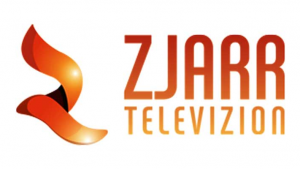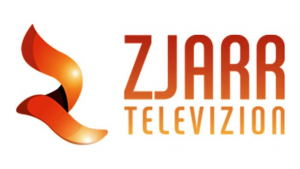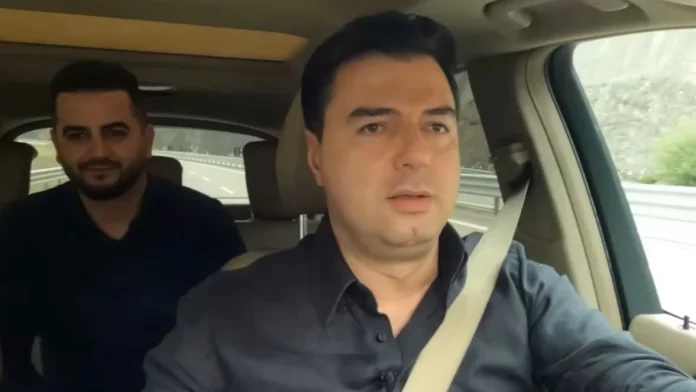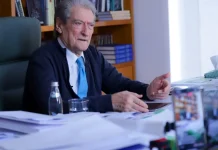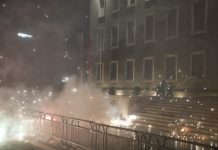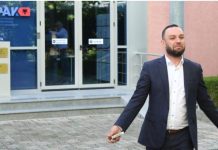Në një podcast, Lulzim Basha tregon si u bë Ministër Transportesh.
Ai gjithashtu tregon se si lindi projekti për rrugën e Kombit, pengesat për ndërtimin e saj, nga mungesa e fondeve e deri të përpjekjet për ta ndalur ketë projekt nga aktorë të huaj, që nuk donin bashkimin kombëtar të shqiptarëve përmes infrastrukturës dhe fuqizimit të portit të Durrësit.
“Jeta e politikës aktive do të fillonte me deputet. Kur dhe një gjë që nuk doja, ishte të mos përfundoja në ministrinë e drejtësisë, pasi sapo kisha ardhur për 5 vite në departamentin e drejtësisë të UNMIK-ut.
Puna e fundit që kisha bërë ishte bartja e kompetencave nga UNMIK-u te qeveria e Kosovës, krijimi i Ministrisë së Drejtësisë së Kosovës. Dhe me thënë të drejtën isha bërë overdozë me çështjet e Ministrisë së Drejtësisë apo të ngjashme dhe nuk doja të merresha fare me atë çështje.
Kur një ditë të bukur më merr Berisha në telefon, “ku je”, këtu i them, “eja pak më tha. Futem në zyrën e tij, te selia e vjetër, më thotë: “Lul do të shkosh në ministrinë e transporteve”. Ku?! – i thash. “Në ministrinë e Transporteve”. Ç’lidhje kam unë i thash me ministrinë e Transporteve?! Lul tha, aty ka shumë korrupsion, ti je jurist, të luftosh korrupsionin. Që ishte në fakt edhe slogani kryesor i fushatës së 2005-ës. Takimi mbaroi për më pak se një minutë dhe unë u largova me dilema të mëdha. Se nuk e dija çfarë ishin prokurimet publike, çfarë ishte thesari i shtetit, çfarë ishte studimi i fizibilitetit, çfarë ishin projektet inxhinierike. Pra në rrafshin e infrastrukturës nuk kisha absolutisht asnjë informacion.
Kur punoja në Kosovë, më binte të udhëtoja 3, 4 herë në muaj nga Shqipëria në Kosovë dhe e kundërta. Në fillim i bija nga Maqedonia sepse ishte rruga më e mirë. Kur detyrohesha t’i bija nga Kukësi, në veçanti kur nisi lufta në Maqedoni, ishte një ferr i vërtetë. Ideja e madhe që më ngrohu dhe më bëri të kuptojë si mision, pra ma ktheu nga një detyrë politike, normale anëtarë i kabinetit, ma ktheu në një mision personal dhe në një mundësi të jashtëzakonshme. Pra, rruga e Kombit ishte gjithçka në motivimin e parë.
Dhe biseda e parë që kam bërë pas kësaj, kur u vendosën prioritet politike. Mos harroni në programin tonë që shpallëm para shqiptarëve në 2005-ën, kandidati për kryeministër atëherë, Berisha premtoi Milot-Rrëshen, si pjesë e rrugës së Kombit. Pra, rrugën e Kombit si prioritet, por brenda 4-vjeçarit të parë do të bëjmë Milot-Rëshen.
Që në prag të pavarësisë së Kosovës, ekzistonin barriera fizike. Male, vargmale të cilat vazhdonin ta mbanin izolimin në këmbë. Volumi i shkëmbimit ekonomik ishte minimal, ishte torturë për veturat që të kalonin nga Tirana në Prishtinë dhe nga Prishtina në Tiranë, e jo më për kamionët. Turizmi po kështu. Pra, ishin gjithë këto dimensione që e bënin rrugën e kombit shumë më shumë sesa një projekt të madh, strategjik, inxhinierik. Ishte një projekt gjeostrategjik. Dhe këtu, siç e shikoja unë, sigurist edhe me begraundin e dikujt që kishte punuar, jetuar në Kosovë, por dhe që kishte vetëdijen që gjysmën e familjes e kishte nga Kosova. Kështu e shikonin edhe ata që e përkrahën këtë projekt. Kështu e shikonin edhe ata që e kundërshtonin.
Edhe kundërshtimet filluan të duken që në fillim, “jo s’keni para për ta bërë, jo duhet të rrisni borxhin, keni pengesë FMN, keni pengesë Bankën Botërore, rregulloni rrugën aktuale, mos mendoni për investime kapitale, mendoni për mirëmbajtjen e rrugëve. Ka prioritete të tjera Shqipëria”. Pse kjo rrugë Durrës-Kukës ishte pyetja më madhe se rruga e Kombit u quajt më vonë.
Pyesnin edhe skeptik të shëndetshëm që donin të dinin ç’ishte ky projekt, por edhe ata që kishin një objektiv të qartë për të penguar një korridor të drejtpërdrejtë transporti dhe një korridor ekonomik siç është ky, midis Tiranës dhe Prishtinës. Sikundër kishte të tjerë që lobonin që korridori kryesor i transportit në Kosovë të mbetej korridori 10, me fjalë të tjera Beograd-Nish-Selanik.
Se fjala Durrës nuk është kot aty. Mund të kishim thënë Tiranë-Prishtinë, por është Durrës-Kukës. Ideja e kësaj rruge ishte të fuqizonim portin e Durrësit dhe përmes tij të rivendosnim Shqipërinë si një aktor të fuqishëm tregtar në bazenin mesdhetar”, shprehet Basha.
